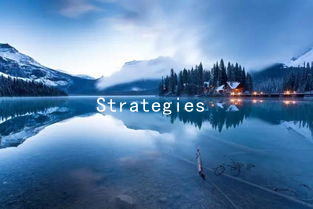From Knowledge to Connection: Using Medical Advice for Relationship Growth
In todays fast-paced world, the art of creating and maintaining strong relationships can often feel daunting. While many are familiar with relationship tips that emphasize communication and empathy, few have considered the parallels between medical advice and relationship growth. Just as we seek professional guidance to maintain our physical health, we can also apply these principles to foster emotional and relational well-being.
Firstly, understanding the importance of preventive care in medicine offers an enlightening perspective for relationships. Just as regular check-ups can help us avoid serious health issues, maintaining open lines of communication can prevent misunderstandings and conflicts from escalating. Couples should prioritize frequent tune-ups in their relationship, engaging in regular conversations about feelings, expectations, and concerns. By expressing appreciation and addressing grievances before they morph into larger issues, couples can create a healthier, more resilient partnership.
Moreover, just as different medical conditions require tailored treatments, so too do relationships thrive on individualized approaches. Every couple is unique, with their own dynamics, backgrounds, and communication styles. It’s essential to recognize and appreciate these differences rather than trying to fit a relationship into a one-size-fits-all model. For instance, while one partner may thrive on verbal affirmations, another might prefer actions that demonstrate love and commitment. Investing time in understanding each others love languages can significantly enhance mutual satisfaction and connection.
The concept of recovery is another area of medicine that resonates deeply with relationship growth. Just as a patient must follow a rehabilitation plan after an illness or surgery, couples often need to work through challenges that may arise over time. Whether it’s a misunderstanding, a major life change, or external stressors, both partners must commit to healing together. This may involve setting aside time for quality interaction, engaging in joint activities, or even seeking therapy. The key is to approach the situation collaboratively, ensuring that both partners feel heard and supported throughout the process.

In addition to healing, the idea of mental and emotional health is paramount. Just as we wouldn’t hesitate to seek help for a physical ailment, prioritizing mental and emotional well-being within a relationship is crucial. Practices such as mindfulness, self-reflection, and even couple’s counseling can help maintain a healthy emotional environment. Couples should encourage each other to pursue individual interests and personal growth, fostering a sense of fulfillment that enhances the partnership.
Furthermore, just as research drives innovation in healthcare, staying informed about the latest relationship science can offer valuable insights for couples. Numerous studies highlight the benefits of vulnerability, gratitude, and emotional intelligence in relationships. Sharing knowledge about effective conflict resolution strategies or understanding attachment styles can equip partners with the tools they need to navigate difficulties more successfully.
Finally, in the same way that physicians emphasize the importance of a strong support system for recovery, couples should cultivate a network of friends and family who encourage their relationship. Social support can provide perspective, advice, and encouragement during challenging times. Engaging with other couples and sharing experiences can also reinforce a sense of community and belonging.
In conclusion, the journey from knowledge to connection in relationships mirrors the principles of medical practice. By viewing relationship growth through the lens of health care—embracing preventive measures, individualized care, recovery strategies, mental wellness, continuous learning, and support systems—couples can build deeper, more meaningful connections. Investing in the health of a relationship not only enriches the lives of both partners but can also lead to a lasting, loving partnership that thrives in the face of lifes challenges.





